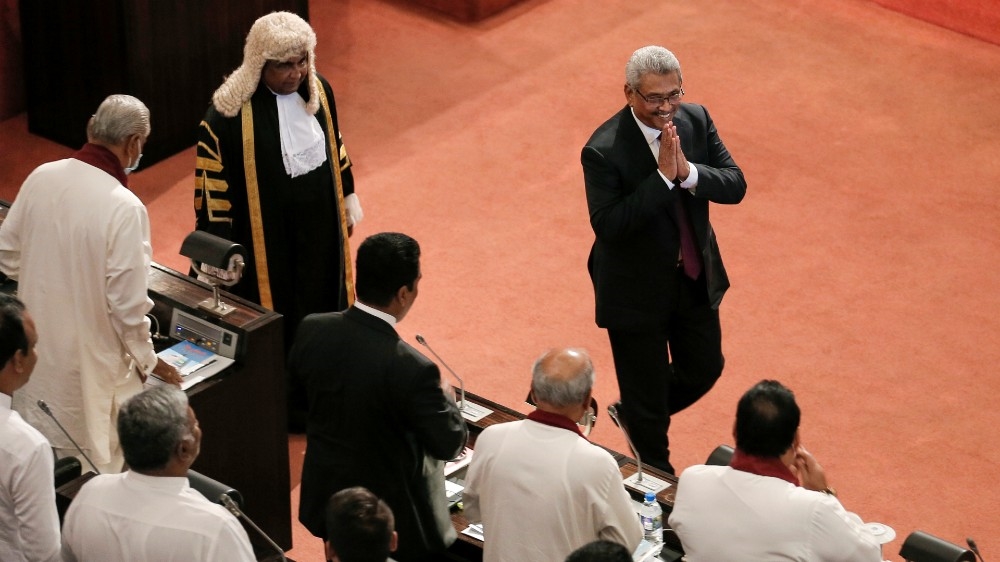Sri Lanka’s President Rajapaksa to scrap reforms limiting powers
Gotabaya Rajapaksa says his government will abolish a constitutional amendment limiting the president to two terms.

Sri Lanka’s president has said he will use the overwhelming mandate received by his governing coalition in recent parliamentary elections to remove a constitutional amendment curtailing presidential powers and limiting the president to two terms.
During a policy speech at the opening of the new parliament on Thursday, President Gotabaya Rajapaksa said his government will abolish the 19th Amendment as a matter of priority and then work on a new constitution.
Keep reading
list of 4 itemsWhy is Biden ratcheting up the trade war with China?
Aden 1986: Anatomy of an assassination
China’s military drills simulate attack on Taiwan
The amendment was added by his predecessor Maithripala Sirisena to reform the country’s political system by reducing the ability of presidents to amass extensive powers.
The move will strengthen Rajapaksa’s grip on power because the country will return to its previous constitutional status, in which the president could head ministries, appoint and dismiss ministers, appoint officials for the police, judiciary and public service and dissolve parliament any time after one year.
“Our constitution has been changed 19 times from 1978, creating a lot of uncertainties and confusion,” he told the parliament.
“Because the people have given us the mandate that we requested from them for a constitutional change, we will as a matter of priority be repealing the 19th Amendment as we promised the people,” he said.
“After that, we will get together and bring in a new constitution that is requested by and needed for the country.”
Rajapaksa said he had faced many restrictions because of the 19th Amendment since being elected president last November.

In the August 5 parliamentary elections, Rajapaksa’s Sri Lanka’s People’s Front won 145 seats and secured the support of six allies, one seat more than the minimum number needed to change the constitution in the 225-seat legislature.
Gotabaya Rajapaksa and his elder brother, Prime Minister Mahinda Rajapaksa, had campaigned for a two-thirds majority so they could roll back reforms brought in by the previous administration.
Mahinda Rajapaksa was removed from the presidency after a decade in power when he lost the 2015 elections.
Analysts now warn the brothers would try to ensure they do not lose power again.
The Rajapaksa brothers enjoy popular support of the Sinhala Buddhist majority for spearheading the defeat of Tamil separatists in 2009 to end the bloody 37-year civil war when Mahinda was president and Gotabaya was secretary to the Ministry of Defence.
But they have also attracted criticism from the international community, with the security services they controlled accused of war crimes committed in the final months of the conflict, in which more than 100,000 people were killed.
Gotabaya Rajapaksa said the new constitution will allow the government to make decisions freely without being influenced by the “extremists”, an apparent reference to ethnic minority parties whose support had been crucial for previous governments.